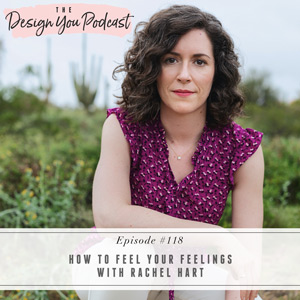
We’ve all had to feel a lot of uncomfortable feelings in 2020, and we tend to use a range of distractions to cover up our real emotions, only for them to resurface later. But by distracting ourselves from our true feelings, we’re not allowing ourselves the potential to be truly happy. So this week, Rachel Hart joins me on the podcast to show us how to feel our feelings and be our own best resource.
Rachel Hart is a Master Certified Life Coach and has helped thousands of women re-examine their relationship with alcohol so that they can unlock their potential. By teaching people to get into their bodies and analyze the reasons they reach for the drink, she helps them replace their negative habits with other ways of feeling pleasure.
Tune in this week where we’ll show you how to have a different relationship with your emotions and how to open up to your body and redefine the joy you’re looking for when you turn to alcohol. If you want to cultivate more pleasure in your life, grab a pen and paper because this is the episode for you!
If you want to keep this conversation going, you have to join my free Design You Podcast community on Facebook. We have great conversations over there about the podcast episodes and our podcast guests are in there too! So head on over and I’ll see you there!





